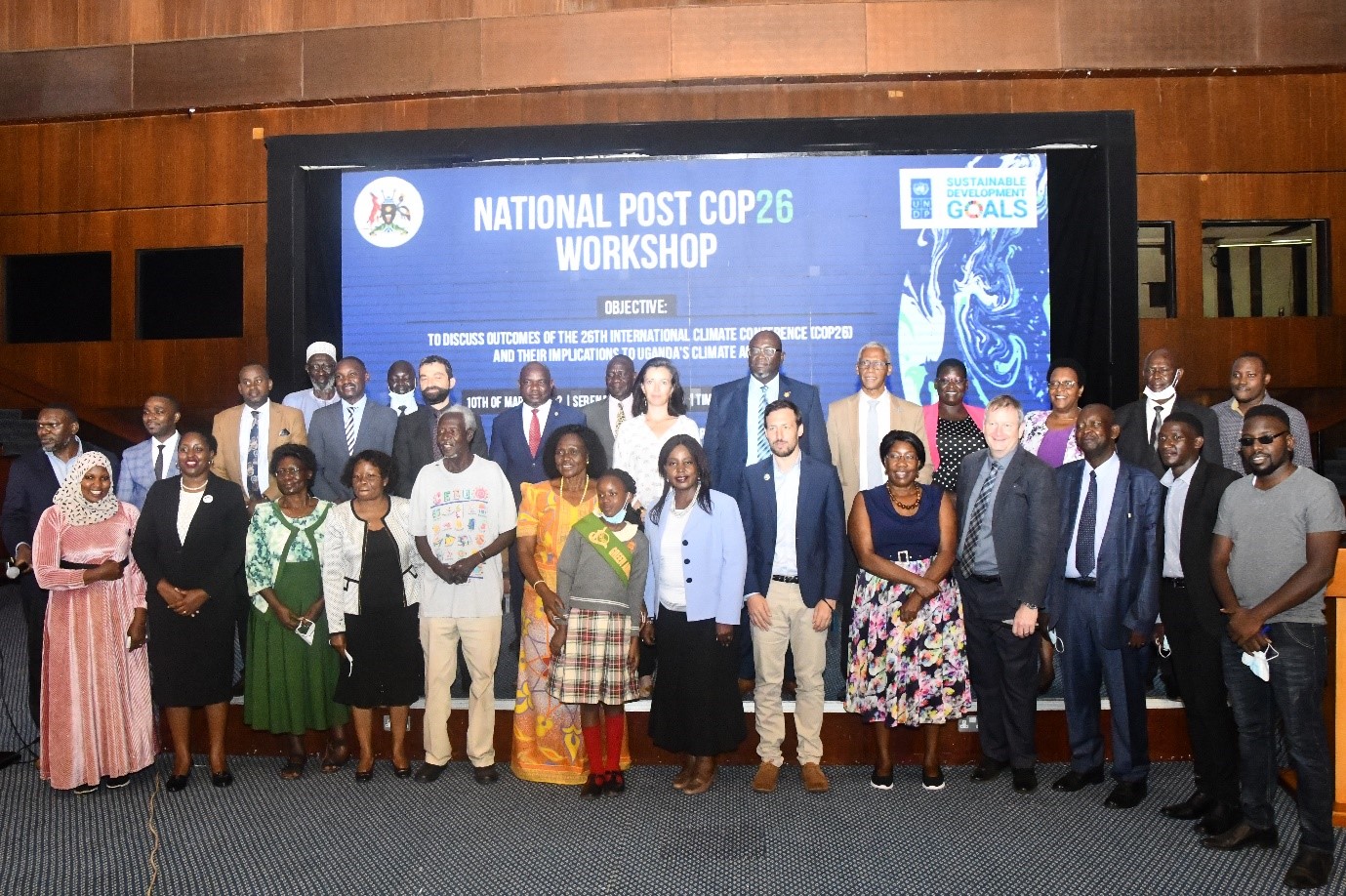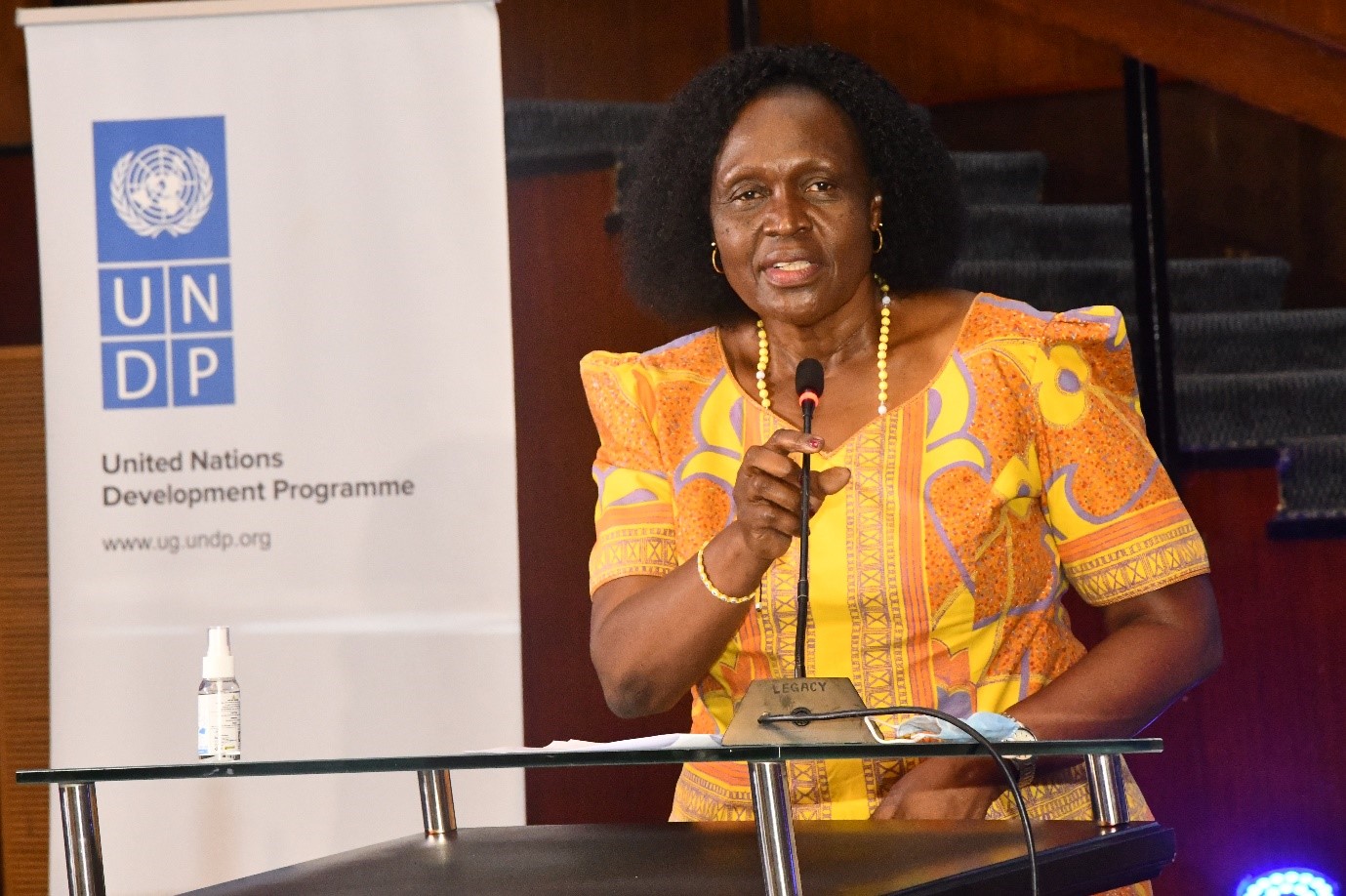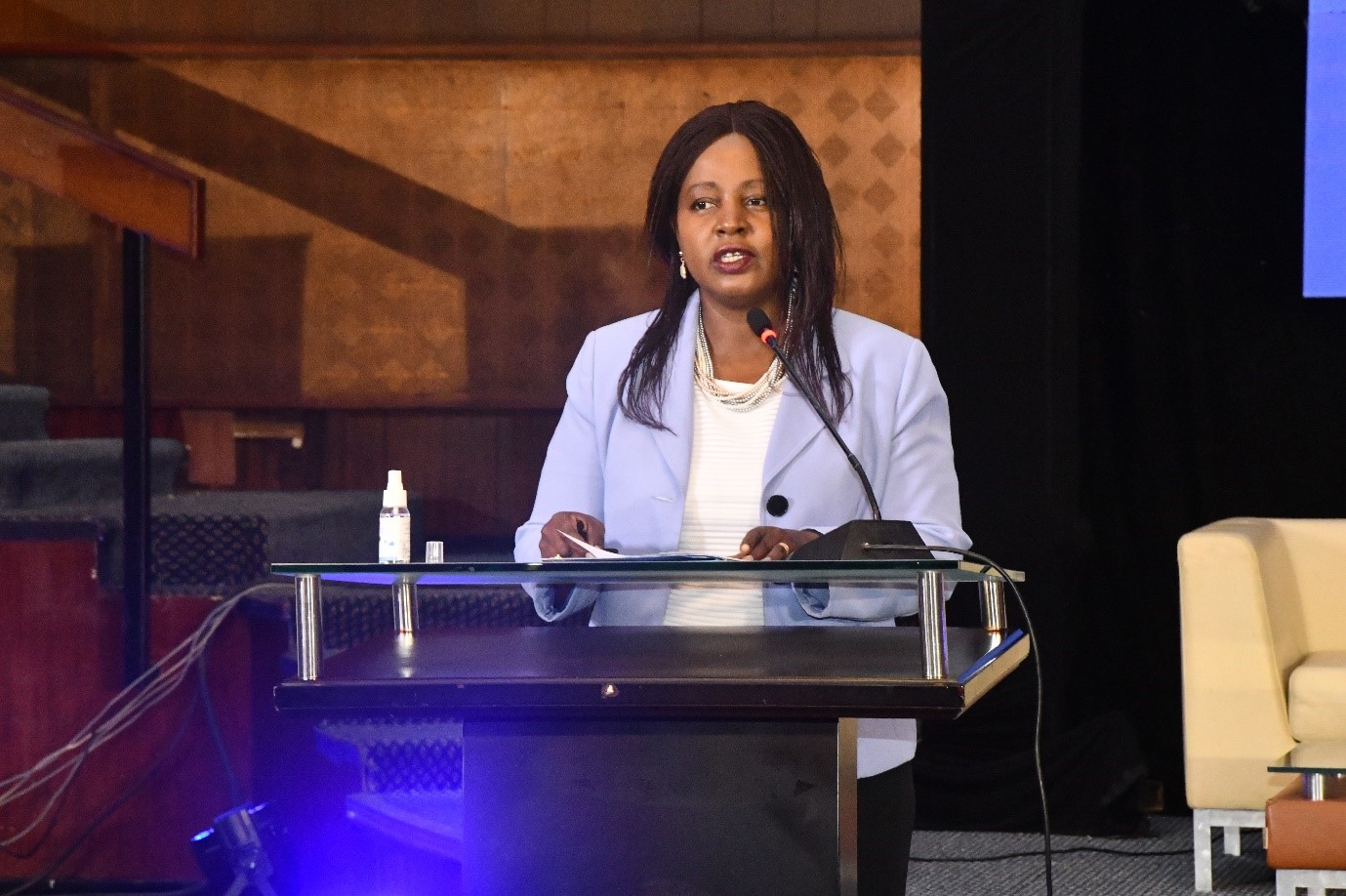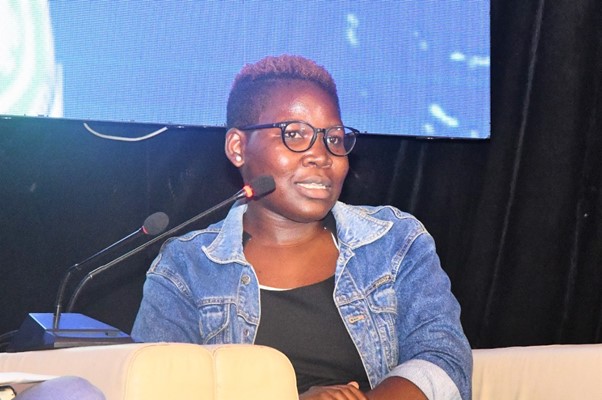Hon. Beatrice Anywar (Center, in yellow) takes a group photo after the post COP26 national workshop.
The Ministry of Water and Environment convened a workshop to discuss the implications of the COP26 outcomes on Uganda’s policy and practice. Supported by the United Nations Development Programme (UNDP), the half-day workshop was held on the 10th of March 2022 at Kampala Serena Hotel. Graced by the Minister of State for Environment Hon. Beatrice Anywar, the Post COP26 workshop gathered stakeholders around the country, who included the United Nations family, representatives from the British High Commission, representatives from embassies, research, academic institutions, youth, civil society organizations (CSOs) among others.
During the workshop, discussions on the implications and opportunities that COP26 presents for Uganda were discussed. Stakeholders discussed how key outcomes on adaptation, technology, and finance among others would be integrated into country planning priorities, particularly the implementation of the country’s Nationally Determined Contribution (NDC).
The need to develop a framework for monitoring the implementation of these outcomes was considered important as it would provide inputs into the road map to COP27, which is expected to take place in Egypt where Uganda and Africa are expected to push for support on clean energy transition, implementation of climate change plans among other development priorities, ensuring that the continent optimizes financial benefits from her oil and gas.
In a similar way, discussions on the integration of capacity building for beneficiaries as one of the key climate change interventions were emphasized not forgetting the issues of gender mainstreaming and the consideration of the special position of youth, People with Disability (PWDs) in climate action.
Hon. Beatrice Anywar, Minister of State for Environment calls for climate action.
During the workshop Hon. Beatrice Anywar emphasized the need for everybody to collectively participate in climate change mitigation and urged all Ugandans and local consumers to say no to destructive products.
“We the consumers of plastic and the end-game sufferers of climate change need to say "NO" to destructive products,” she emphasized.
She continued to challenge participants to demonstrate commitment to climate action, noting that climate action starts with individual behaviors and actions.
“All our works must be aligned with planting indigenous trees to restore our national forests that have fallen victim to the deforestation activities in Uganda,” she said.
Ms. Sheila Ngatia, Deputy Resident Representative, UNDP Uganda.
To stimulate critical reflection and discussions, the UNDP Deputy Resident Representative, Ms. Sheila Ngatia posed key questions:
“Is there the provision of means of implementation in the COP26 outcomes for Uganda’s NDC, and to ensure the realization of the enhanced ambition?
a) As a country, how can we boost national readiness to capitalize on article 6 that opens the way for market mechanism especially carbon trade?
b) What are the implications for Uganda in COP26 failing to have a decision on loss and damage mindful of the frequent climate -induced floods and landslides that the country experiences?
c) There is a continuous call for the engagement of non-state actors in boosting climate actions. As a nation, how do we plan to implement the engagement of civil society, private sector, academia, youth among others?” She asked during the national Post COP26 workshop at Serena Hotel, Kampala.
Juliet Grace Luwedde, Youth representative from Uganda at the COP26.
As a way forward in scaling and amplifying the voices of young people, UNDP in Uganda supported a youth representative to attend the COP26 in Glasgow UK - it is important to provide a platform and see more young people attend and showcase their innovations and be part of key world decisions.
“I appreciate the support of UNDP and for the support that is being given to young people acting and innovating in the climate spaces across the country. I am a firm believer in the school of through that unleashing the energy & creativity of young people starts with providing them with the right platforms, the right opportunities & the right collaborations. As young people, with the support of our leaders say the Climate Change Department in Uganda, we can create more platforms of engagement.”- Juliet Grace Luwedde, said during the workshop.
Implications of COP26 Outcomes for Uganda
One of the key goals of COP26 was to influence policies that would enable the world to achieve net-zero. This means cutting greenhouse gas emissions to a level where global warming will be kept under 1.5°C and as a result, retaining a planet that is liveable for communities and nature. Despite Uganda being a low carbon economy, it is at risk to natural disasters caused by extreme weather events, which has led to mudslides, landslides and flooding, particularly for the Country’s Mountain regions and related districts such as Mbale in the Mountain Elgon region.
Climate change is predicted to have a significant impact on Uganda. The national-level studies show that if no adaptive action is taken, annual costs could be in the range of US$3.2 - 5.9 billion within a decade, with the biggest impact being on water, followed by energy, agriculture, and infrastructure. For over 40 years from 2010 to 2050, the costs of inaction are estimated between US$273 - 437 billion. Even if there were no further increases in climate impacts, the cost of inaction would rise over time because of an increase in population. Poor and vulnerable groups are mostly likely to be impacted through damages to their assets, livelihoods, and their food security.
With these key outcomes, the next step for Uganda is to ensure that the country has the required means of implementation of the targets set in the climate change policies and strategies such as the National Climate Change Act, the revised Nationally Determined Contribution (NDC), Long term Low Carbon Development Strategy (LTS), Green Growth Development Strategy, among others. This can be achieved through effective capacity building, increased access to climate financing, technology to ensure effective implementation of key climate change adaptation and mitigation measures in sectors including agriculture, forestry, water, energy, transport, water and sanitation, infrastructure, among others. Key interventions include promoting climate-resilient and low carbon agricultural production and value chains, promoting land management practices that promote sustainable and productive use of land, climate-resilient water supply systems, sustainable management of ecosystems, strengthening climate information services, promoting education on climate science, increase efficiency in the use of biomass in the energy sector and promotion of the use of alternative/renewable energy sources.

 Locations
Locations






